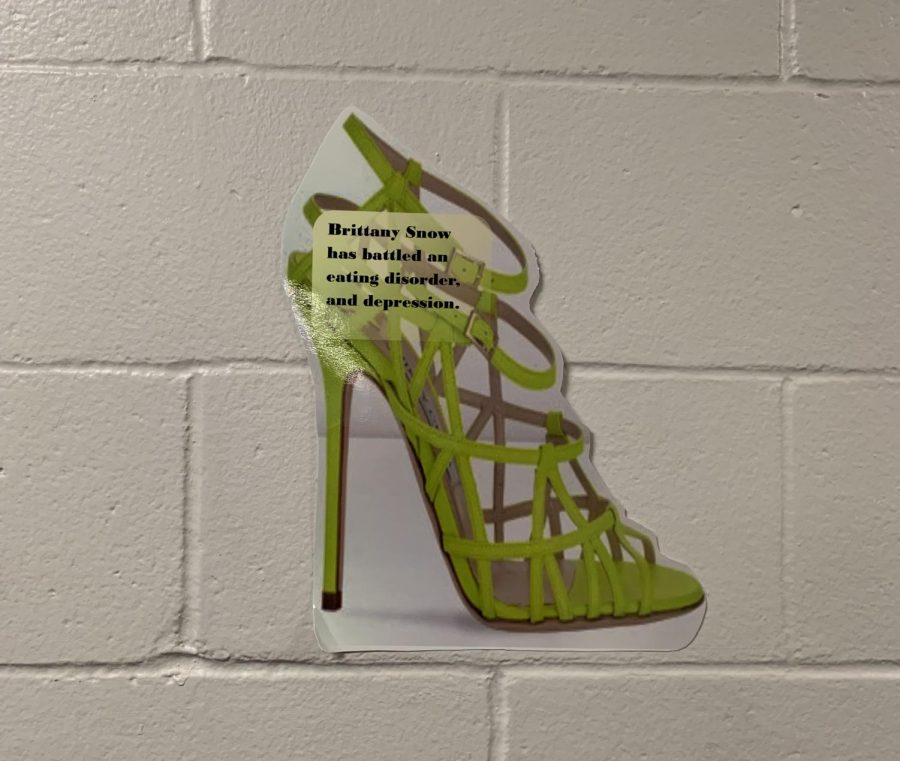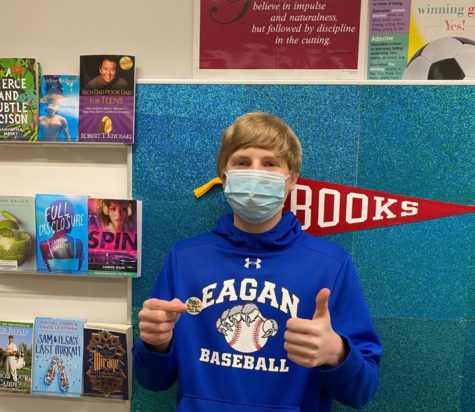EHS students open up during Mental Health Awareness Month
May 20, 2019
Anyone can feel stressed out or worried from time to time. But not everyone understands that this can be an everyday reality with those struggling with a mental illness. Mental health is just as real and important as physical health and should be a topic talked about more openly to help those around us know they aren’t alone. To get the conversation in May’s Mental Health Awareness month started, I talked with a few students at Eagan who wanted to share their stories.
I’ve been diagnosed with clinical anxiety and depression within the last year. My mental health has made balancing school, sports, and everything else in my life very difficult. People don’t understand that I’m not just being lazy when things don’t get done. I’m not being lazy when I have to step out of class because I can’t breathe. I’m not being lazy when I step out of practice because I’m in tears. The best option is to seek help if you think you may have a mental health disorder even though it can be terrifying at first.
-Anonymous Freshman
I am diagnosed with an anxiety disorder and major depression disorder. Because of all this, I’m naturally an emotional wreck most of time. I could go from happy and talkative to crying a couple minutes later because of a pencil I lost. Mental illness is weird like that. If a friend comes to you opening up about their mental illness, it’s okay to not know what to do or how to react, especially if you haven’t dealt with that personally. Ask how you can help support said person. A lot of people with mental illnesses feel they are a burden because of their illness, so just let them know they are supported and cared for. Some things that can help are:
-The counseling office, which provides a break room for stressed/panicked students as well as meetings with your counselor regularly
-504 plans!! (School plan that has special accommodations for the student. Ex: longer time to take tests, always sitting in a certain area of a room etc)
-Ally Webster, Freshman
For me it’s hard to go to loud and over stimulating places that are crowded. I tend to get sensory overload. I don’t really go to any of the pep fests or school events because they’re too much for me to handle. Anxiety at times will trick me into thinking that everyone is judging me, and makes it hard for me to socialize or get to know people. I think teachers are the main people who need to start helping out. I believe teachers could help out more by at the beginning of the tri, having students take a survey asking about mental health issues. Then the teacher can know if the student may need to leave the room to take a mental health break.
-Anonymous Student
I have both anxiety and depression and I tend to either have no motivation to do things, or am too afraid of being judged for being wrong. I love learning but my anxiety causes the fear of getting a bad grade which makes school so much worse. I think people don’t understand the way mental health can impact your grades. Last trimester I would be so distracted and terrified I could barely focus during APUSH and my grades dropped drastically.
-Josie Vandiver, Sophomore
My mental health has impacted me greatly in school. Often times I’ve felt that my mental health was written off as a grab for attention. I have been called awful names. Sometimes it can be really easy to judge people who struggle with more severe mental illnesses. The common misperception surrounding mental health is that it’s all in your head. Mental illnesses are a real thing for me and many others and their road to healing is not a direct path.
-Anonymous Student
I get sad all the time for absolutely no reason, at least that’s what it seems like. It’s really hard at school because I have panic attacks in class while taking tests or I go to the bathroom and just bawl my eyes out and the teachers don’t realize that that’s a reality for a lot of kids. People don’t understand that it isn’t bad or taboo to talk about your mental health. In fact it can prove really beneficial to talk freely about it. I find that when I talk about what I’m struggling with with someone such as a friend or my therapist, it makes it feel like a weight is lifted off my shoulders. People dont always show signs of their struggle with mental health out right. So just cut the crap and be nice to everyone, it’s cheesy but it’s true, you could save someone’s life just by being nice to them.
-Anonymous Sophomore
An important thing to know about mental health for kids our age is that it has profound effects on our confidence and performance in school. If I could say anything to the people doing well, it would be to be patient and be understanding. Don’t compare a healthy mental state to an unhealthy one. Stigma around depression and anxiety and many other conditions only adds to the negative effects of those illnesses.
-Carter Starkey, Senior
If you’re struggling with your mental health, reach out. Whether it’s to family or friends or your counselor, you’re not alone, and it DOES get better.
Some resources outside of talking with friends, family, or a professional are as follows:
Free 24/7 Confidential Crisis Hotlines-
1-800-273-8255 (U.S. Crisis line)
1-877-565-8860 (Trans help lifeline)
1-800-729-6686 (Alcohol and Drug abuse)
1-866-488-7386 (Trained Counselors at the Trevor Project)
Text HOME to 741741 (Trevor Project Text line)
Websites for helpful information-
https://www.mentalhealth.gov/talk/community-conversation
https://www.nimh.nih.gov/health/find-help/index.shtml
http://www.mentalhealthamerica.net












